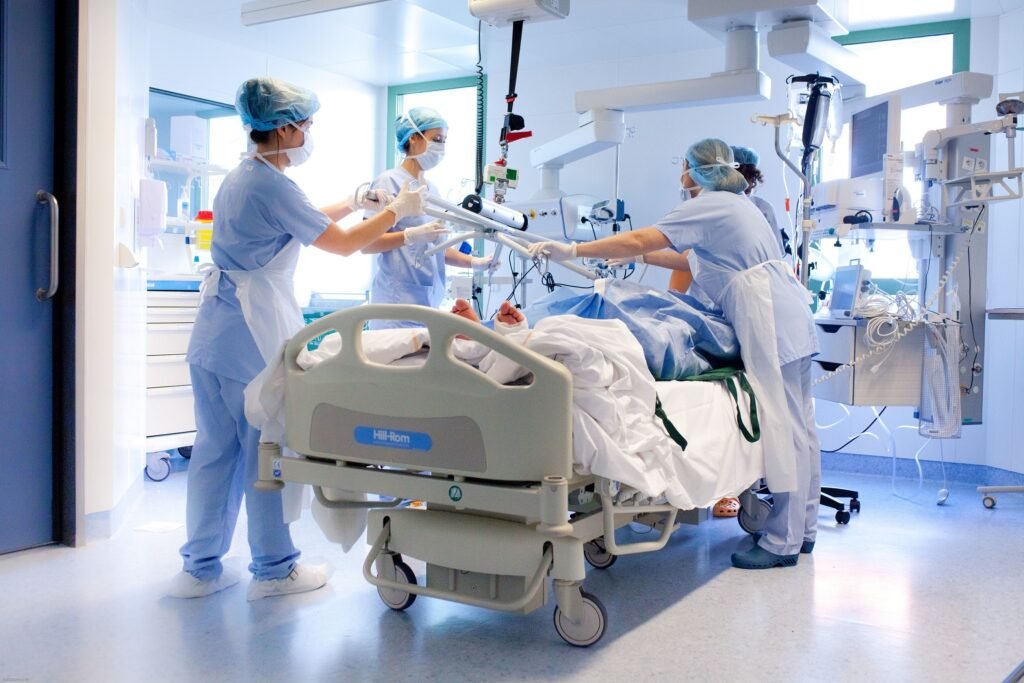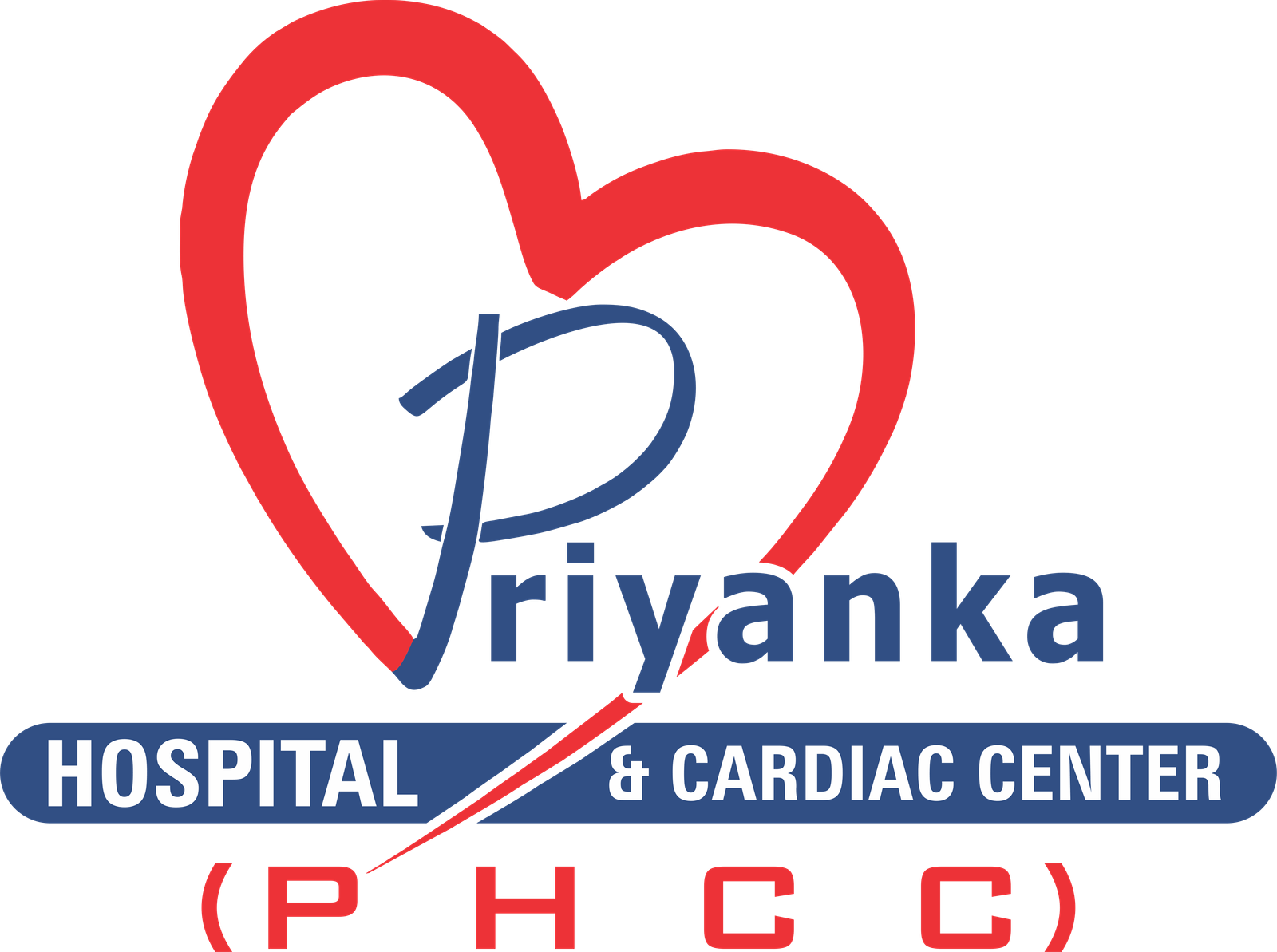Critical Care Hospital In Jaipur
At Priyanka Hospital Jaipur, our Critical Care units represent a synergy of various specialties and cutting-edge technologies, providing a lifeline to patients facing acute and critical illnesses. Our intensive care units (ICUs) are meticulously structured and managed, recognizing the significant impact of organized Critical Care services on crucial outcome measures such as mortality rates, length of hospital stay, and infection rates.
We offer a range of multidisciplinary ICUs tailored to cater to diverse patient needs, including those recovering from cardiac surgery, stroke, transplantation, infectious diseases, and specialized care for neonates and pediatric cases. Additionally, our Acute Care services integrate seamlessly with our emergency response team, intensive care specialists, and anesthesiologists to ensure prompt, efficient, and precise patient care.

Why Choose Priyanka Hospital For Critical & Intensive Care in Jaipur
Choose Priyanka Hospital for Critical Care because we offer comprehensive expertise, state-of-the-art facilities, and a multidisciplinary approach to ensure the best outcomes for our patients. Our team of highly skilled specialists is equipped with the latest technology and medical equipment to provide advanced care for a wide range of critical conditions. We prioritize patient-centered care, offering support and guidance to patients and their families throughout their journey. With seamless integration of services and a commitment to excellence, we strive to deliver the highest standard of care with compassion and dedication. Trust Priyanka Hospital for Critical Care and experience peace of mind knowing that you are in capable hands.
procedures perform?
- Extracorporeal Membrane Oxygenation (ECMO)
- Pain management
- Bedside 2D echo Doppler and ultrasonography including Focused Assessment with Sonography for Trauma (FAST) for trauma cases
- Monitoring of intra-abdominal pressure
- Hemodialysis/Slow Low Efficiency Dialysis (SLED)/Continuous Renal Replacement Therapy (CRRT)
- Placement of percutaneous gastrostomy and gastrointestinal endoscopy
- Inter-costal drainage
- Fiber-optic bronchoscopy
- Percutaneous tracheostomy
- Management of difficult airways
- Non-invasive and invasive mechanical ventilation
- Placement of temporary pacemaker
- Placement of intra-aortic balloon pump
- Non-invasive and invasive hemodynamic monitoring
What is Critical Care Unit?
A Critical Care Unit is a specialized medical facility that provides intensive care for patients with life-threatening conditions. It is staffed by a multidisciplinary team of healthcare professionals trained to manage and treat critically ill patients. The unit focuses on providing immediate and continuous monitoring, diagnosis, and treatment for conditions such as septic shock, acute respiratory distress syndrome, cardiac disorders, neurological diseases, trauma, surgical ailments, and neonatal or pediatric intensive care needs.
Specialties within the Critical Care Unit include:
Cardiac disorders: Treatment for conditions such as myocardial infarction, cardiogenic shock, arrhythmias, heart failure, hypertensive emergencies, and post-cardiac arrest care. Advanced interventions like extracorporeal membrane oxygenation (ECMO) are also provided.
Neurological diseases: Management of stroke, head trauma, aneurysms, brain tumors, and post-surgical neurological patients requiring frequent neurological assessments and care.
Trauma: A dedicated department equipped to handle critically injured patients, staffed with intensivists, emergency physicians, anesthetists, surgeons, nurses, respiratory therapists, and radiological staff.
Surgical Intensive Care Unit (SICU): Inpatient care for critically ill surgical patients, providing specialized management for surgical ailments.
Neonatal Intensive Care Unit (NICU): Specialized care for newborns who require intensive medical attention, including premature infants and those with congenital disorders or complications from birth.
Pediatric Intensive Care Unit (PICU): Intensive care for children with life-threatening medical conditions such as asthma, influenza, diabetic ketoacidosis, traumatic brain injury, or surgical cases requiring close monitoring postoperatively. Specialized care is available for pediatric cardiac patients, including those requiring cardiac transplantation or postoperative care after cardiac catheterization.
Explore Our Main Service
Cardiac Sciences
Clinical Diagnostics
Kidney Transplant
Critical & Intensive Care
Gynecology & Obstetrics
Neuro Sciences
Cosmetic Surgery
Spine & Scoliosis
Liver Care
Paediatric Cardiology
Genetic Sciences
ENT Surgery
Joint Replacement
Orthopaedics & Trauma
Pulmonology
Arthroscopy Sportsmedicine
IVF
Dental Sciences
Pain Clinic
Nephrology
Paediatrics
Health Checkup
Urology
Gastro Sciences
Dermatology
Emergency Medicine
Physiotherapy
Sleep Disorder
FAQs on Critical & Intensive Care
What is Critical & Intensive Care, and what conditions does it involve?
Critical and Intensive Care is a specialized area of healthcare focused on the management of critically ill or unstable patients who require close monitoring, life support, and advanced medical interventions. This includes patients with severe injuries, life-threatening illnesses, post-operative complications, acute organ failure, sepsis, cardiac arrest, respiratory failure, and other medical emergencies.
What is the role of the Critical Care team in the management of patients?
The Critical Care team typically includes intensivists (physicians specializing in critical care medicine), critical care nurses, respiratory therapists, pharmacists, and other healthcare professionals with specialized training in managing critically ill patients. Their role is to provide comprehensive and interdisciplinary care, including continuous monitoring of vital signs, assessment of organ function, administration of life-saving medications and therapies (such as mechanical ventilation, hemodynamic support, and renal replacement therapy), and coordination of multidisciplinary interventions to optimize patient outcomes.
What are the common interventions used in Critical & Intensive Care?
Common interventions used in Critical & Intensive Care include mechanical ventilation to support breathing in patients with respiratory failure, vasopressors and inotropes to stabilize blood pressure and cardiac function, sedation and analgesia to manage pain and agitation, continuous renal replacement therapy or dialysis to support kidney function, enteral or parenteral nutrition to provide adequate nutrition, and invasive procedures such as central venous catheterization, arterial line placement, and tracheostomy as needed for monitoring and treatment.
How is patient care coordinated in the Critical Care unit?
Patient care in the Critical Care unit is typically coordinated through a multidisciplinary team approach, led by intensivists or critical care physicians. The team conducts regular rounds to assess patient status, review treatment plans, and make adjustments as needed based on clinical progress and response to therapy. Communication among team members, including nurses, respiratory therapists, pharmacists, and consulting specialists, is essential for providing timely and comprehensive care. Family-centered care is also emphasized, with regular updates and involvement of patients’ families in decision-making and care planning.
What are the outcomes for patients treated in the Critical Care unit?
The outcomes for patients treated in the Critical Care unit vary depending on factors such as the severity and nature of the underlying condition, comorbidities, age, and overall health status. While some patients may recover and be discharged home, others may require ongoing rehabilitation or transition to long-term care facilities. Unfortunately, some patients may experience complications or succumb to their illness despite aggressive treatment efforts. The goal of Critical & Intensive Care is to provide optimal support and care to improve patient outcomes and quality of life whenever possible.
Still Have a Question?
If you cannot find answers to your queries, please fill out the enquiry form or call the number below. We will contact you shortly
